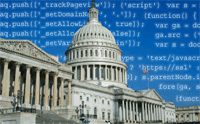
Congress Opens Floodgates with Data Law

If, as many now suspect, open source is becoming less open, there was a bit of good news for open-source advocates at the end of 2018 when Congress approved legislation ensuring that unclassified government data remains free and available to all.
The Open, Public, Electronic and Necessary (OPEN) Government Data Act was approved by lawmakers at the close of last session of Congress in late December. The OPEN provision was included as part of a larger Foundations for Evidenced-Based Policymaking Act of 2017.
The open data legislation currently awaits the president’s signature.
The legislation’s definition of what constitutes “open” government data is somewhat vague, defined as “not encumbered by restrictions, other than intellectual property rights.” Open data is considered under the legislation to be a “public data asset” maintained by government agencies and “released to the public” without restrictions on its use.
Observers note that access to huge volumes of government data ranging from weather and agricultural statistics to demographic information gives U.S. companies a critical advantage over international technology competitors. For example, experts note that Chinese AI companies have far less access to government data that could be used to train machine and deep learning models.
Chinese AI researchers face not only lack of access to domestic data but also government “firewalls” that prevent them from tapping into international data sets, noted Xiaomeng Lu, international public policy manager for technology consultant Access Partnership.
Meanwhile, technology groups that lobbied for the open data provision were quick to praise the legislation. “Congress has now affirmed the basic principle that government data should be freely available and accessible to everyone by default,” noted Daniel Castro, director of the Center for Data Innovation.
“The OPEN Government Data Act will ensure that the federal government releases valuable data sets, follows best practices in data management and commits to making data available to the public in a non-proprietary and electronic format,” the Washington-based group said.
“Passage of the OPEN Government Data Act is a win for the open data community,” added Sarah Joy Hays, acting executive director of the Data Coalition. The group noted the legislation defines open data “without locking in yesterday’s technology” and creates baseline standards for providing public access to federal data.
Recent items:
Cloud Backlash Grows as Open Source Gets Less Open
China Ahead on AI Strategy, Behind on Data Access






























